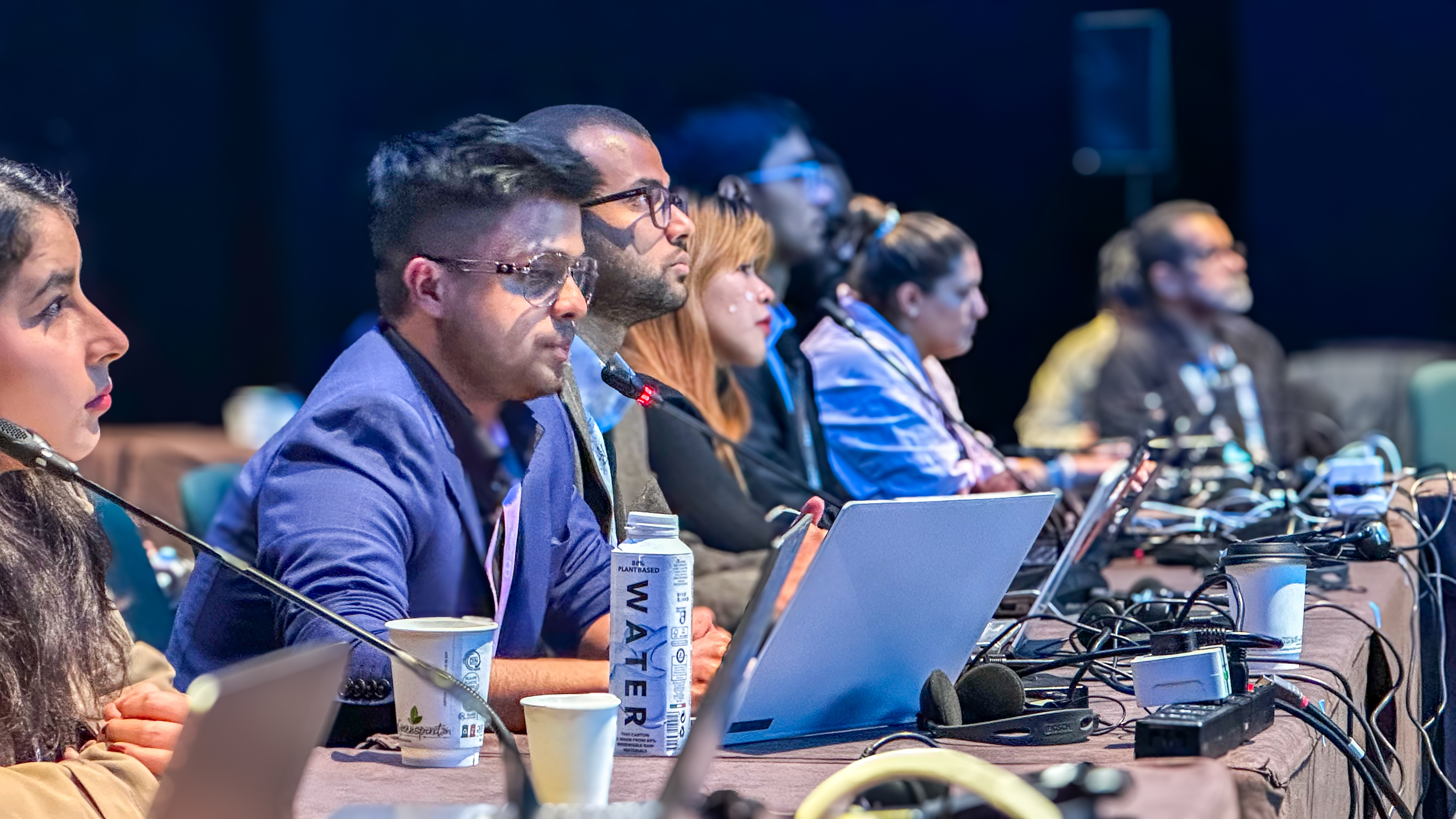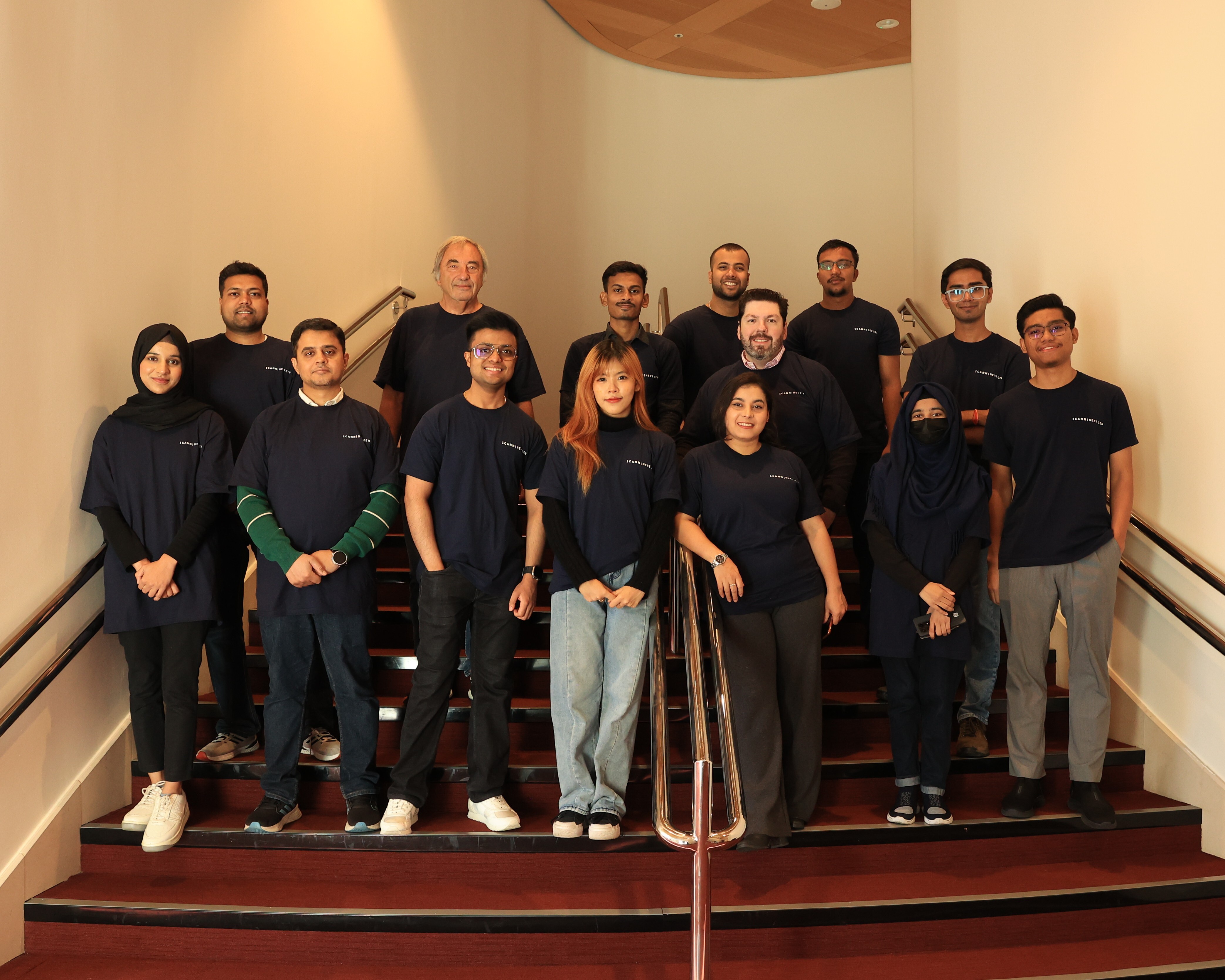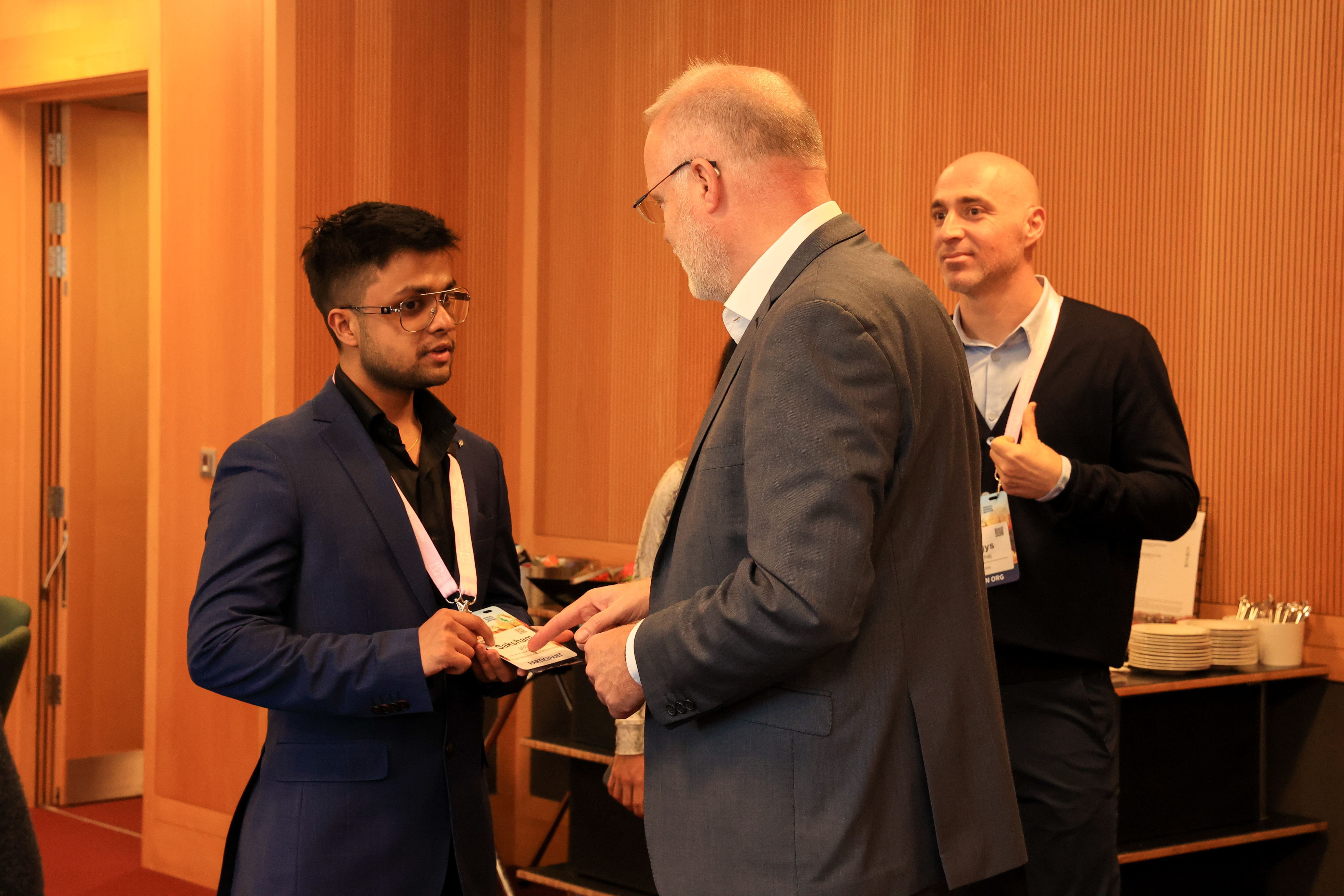My ICANN NextGen journey: becoming a future internet leader
Earlier this month, auDA Junior Software Engineer Saksham Jain attended the 84th meeting of the Internet Corporation for Assigned Names and Numbers (ICANN84) as part of ICANN’s NextGen@ICANN program. NextGen@ICANN is a youth program that supports the development of the next generation of global internet policy participants. In this blog, Saksham shares his journey among a cohort of internet governance leaders - one that marked the first time he truly realised just how many people and organisations are involved in keeping the internet stable and trustworthy.
How did you get your start in the internet sector?
I first joined auDA in 2022 as an intern in the Compliance Team, working directly to address DNS abuse cases (such as phishing and malware) in the .au domain. .au has some of the lowest levels of DNS abuse in the world, but they still occur, and a primary focus of auDA’s is continuing to drive down DNS abuse. In 2024, I moved into a software development role in the IT team, but that early exposure to reducing DNS abuse has always stayed with me. It’s also what motivated me to apply for the NextGen program, as I wanted to understand how what we do at auDA fits into the broader internet ecosystem.
What were some of the highlights from your ICANN experience?
At ICANN84, I quickly realised that DNS abuse is much bigger than the individual cases I see in a case-management system. It was discussed across technical sessions, policy and governance discussions, as well as conversations with At-Large representatives and governments about how to protect end users. A highlight for me was the country code Name Supporting Organisation (ccNSO)’s Tech Day DNS abuse session, where several country-code operators shared how they are trialling AI-powered systems to identify potentially abusive domains at the time of registration. Seeing those ideas tested in production, not just on slides, was a good reminder that innovation is already happening across the country code top level domain (ccTLD) community.
My own presentation at ICANN84 focused on the other half of the DNS abuse lifecycle: what happens after a domain name is already registered and being used. I shared how .au prioritises fixing DNS abuse and restoring domain names that have been suspended due to instances of abuse, wherever possible.
This is important as DNS abuse cases that do occur in .au almost always result from hacked small business or not-for-profit websites without adequate security. By helping those website owners address the DNS abuse, we enable them to improve their website security and continue using their website. I also spoke about opportunities AI/ automation could bring.

Saksham presenting at ICANN84.
Another highlight was being invited, along with other NextGen participants, to have lunch with the ICANN CEO, Board and Executive Team, followed by an interactive Q&A session. We were given the chance to speak directly about our concerns and ideas, including issues around access and youth engagement. For me, that sent a strong signal that the youngest people in the room aren’t just “future leaders”, we’re part of the conversation now, and the community genuinely wants to hear from us.
Some of the most valuable parts of ICANN happened outside the formal sessions. The atmosphere was incredibly approachable. No matter how senior someone was, whether they were a long-time community leader, or part of the ICANN organisation, people were happy to share their experiences and answer questions. As a student and early-career engineer, it was encouraging to see that there is space for younger voices and fresh perspectives.

Saksham with fellow NextGen@ICANN participants and mentors.
What is a big idea, or key takeaway that you’ve brought back with you?
The biggest thing I brought home is that internet governance is a team effort. Effective DNS abuse mitigation depends on measurement, policy, contracts, operations and user advocacy all working together. For my role at auDA, that means thinking about how we can use data and tools to make our workflows smarter and more efficient, without losing the human judgement that protects legitimate registrants (domain name holders). It also means staying connected to the global community so we can share what has worked in .au and learn from what others are trying.
I recently spoke about these experiences at auDA’s ICANN84 debrief webinar, where we unpacked what the different ICANN groups talked about. You can view the webinar recording on the auDA website.

Saksham meets with a former Director and Chair of ICANN, Maarten Botterman.
Any advice for others getting their start in internet governance?
If you’re a student or early-career professional in Australia and any of this sounds interesting, I’d really encourage you to get involved. Programs like NextGen and the ICANN Fellowship are great entry points. Closer to home, becoming a .au member, following auDA on social media and joining our events and webinars are simple ways to stay informed and have your say in how the .au domain is run. auDA also runs the Asia Pacific Internet Governance Academy Australia (APIGA Australia), which is designed to develop the next generation of Australian youth leaders in the internet and digital ecosystem.
Ultimately, don’t wait until you’re “senior enough”. The internet shapes all our lives, and your perspective deserves a place at the table.
More information on auDA’s internet governance work is available on the auDA website.
Quotes have been edited for brevity and clarity.